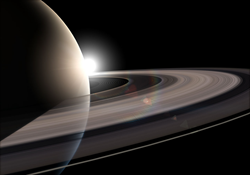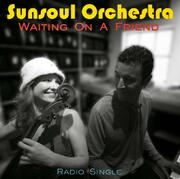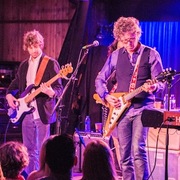New York, NY (Top40 Charts) The KSO gases up the
Millennium Falcon and tours the solar system with tour guide and outreach astronomer Dean Regas and staff of the Cincinnati Observatory. Gustav Holst's 50-minute suite of tone poems — The Planets, which sonically depict seven of the eight planets (we visit Earth after intermission), will be heard in a different order than usual — starting closest to the sun with Mercury and moving out to Neptune. Newer NASA images will accompany the orchestra's performance with about 250 photos/videos showing aspects of each planet and its moons. "Dean will come out on stage a couple times to speak in between movements and point out what to watch for during the next, while I may jump in and add a tidbit about Holst's music," said KSO music director
James Cassidy. "It will be a laid back, but quite informative concert video presentation." During intermission (and after the concert) the Observatory staff will be on hand outside with telescopes so that audience member may view both Venus and Jupiter in the night sky (cloudless skies permitting).
Karel Husa's Apotheosis of This Earth is a moving, 25-minute, three-movement work from 1970-71 and a fitting Earth Day (April 22) tribute. Originally written for concert band and transcribed by the composer for orchestra and chorus, the work takes its cue from a divisive time, encompassing the height of the Cold War, Vietnam conflict, rampant air and water pollution, earthquakes, and climate change (global cooling), when all were all serious concerns. At the time, it appeared that all was spiraling out of control. Given that back drop, Husa's piece represents three phases of the Earth: First its "Apotheosis" or the planet's perfect form (before man), where the listener is taken on a voyage from outside the solar system to earth. Images will again accompany the musical selection. In the second movement "Tragedy of Destruction," man's inhumanity, recklessness is captured, armageddon is unleashed and the planet is mortally wounded and dies. The music and images together are both jarring and apocalyptic. The "Postlude" is an epilogue in which the pulverized planet is fragmented and human memories drift though time and space. Here the chorus speaks in disjointed, echoed syllables, which later come together in a solo voice to whisper — "This beautiful Earth" before the piece fades into the ether.
The KSO
Chorale is joined by the Glenville
State College Chamber Singers from West Virginia, Teresa Dody, director and the newly reconstituted Chelsean Chamber Choir from
Thomas More College, Rebecca Wells, director.
The KSO continues its 23rd season celebrating music of the 20th century at 8:00 p.m., Saturday, April 11 at Florence Baptist Church at Mt. Zion. Tickets are $19, $27, $35 (children 6-18 receive 50% off) and are available online https://www.kyso.org, by phone (859) 431-6216 or at the door.
About the KSO: The Kentucky Symphony Orchestra takes the "phony" out of symphony through its varied and thematic concerts, which culturally enrich, educate and entertain the residents of Northern Kentucky and Greater Cincinnati. The KSO performs throughout Northern Kentucky performing three series of concerts, for the schools, in the parks and at various indoor venues.
























